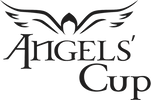Coffee 101: Tips For Coffee Beginners

Across the country, the craft coffee movement is growing. Great roasters are popping up all over the place and the level that quality coffee has reached is phenomenal. It is a great time to be a coffee lover. If you are just showing up to the coffee party, don’t worry. There is plenty of time to get up to speed. While the world of coffee knowledge is vast, here are a few tips for coffee beginners that can instantly elevate the quality of the coffee you brew at home and give you a head start on your coffee journey.
Start with Fresh Roasted, Good Quality Coffee
Not all coffee is on an equal footing. Most people know that there is a difference between various coffee qualities, but they might not know how vast the differences in quality actually are. The coffee that you choose makes a huge difference on your brewed cup of coffee. Here is what to look for:- Look for a roast date- Despite popular opinion, coffee is a perishable food and is actually pretty volatile. Don’t be fooled by coffee that has a best by date, look for coffee that has a roasted on date. Roasted coffee is best within the first month or so of the roast date.
- Avoid pre-ground when possible- If grinding your coffee at home right before you brew is an option, that is the recommended method. Coffee stales much quicker in it’s ground form and purchasing pre-ground coffee with an expiration date instead of a roast date will probably mean you are not getting the most out of your coffee brewing experience.
- Search for quality roasters and coffee you like- You may have a hard time finding fresh roasted coffee at your standard super market. Search out local coffee shops, coffee subscription services and area roasters for the freshest and best coffee. It helps to find someone; a roaster, a barista, or a twitter account, that you can actually interact with and ask questions about their coffee.
Pay Attention to The Details
As with most things worth doing in life, paying attention to the details matters for brewing coffee. There are many small details that go into making a great cup of coffee, but two larger details that make a big difference are using fresh, clean water and measuring your dosage. Coffee is mainly water, hence the water you use will make a significant difference in how your coffee turns out. Use water that tastes good to you, if the water tastes good it will probably be fine for coffee. Make sure it is fresh, clean and clear. Using bottled spring or drinking water is fine but do not use distilled. Regulating and measuring how much coffee you use when you brew is something that takes small effort but has huge pay-offs. Don’t just guess how much coffee to use. Start with the recommended dosage for your brewing method and then adjust for personal preferences after tasting your finished product. Your goal is consistency. Without measuring the ratio of coffee to water you are using, it will be hard to get repeatable results.Focus on Quality
In a culture where nearly everything is mega-sized, making coffee is no exception. Mass quantities are the first priority and quality is typically only added in when it is convenient. Take the road less traveled and focus on quality, you won’t be disappointed. Here are a few things that can pack a punch from a quality of brewed coffee perspective:- Make small batches and drink it fresh- Brewed coffee is best fresh. It is better to make several small batches throughout the day than to make one large batch in the morning and have it sit on a hot plate all day long. Leaving your coffee on a hot plate will burn it and change the taste (it’s not a good change either). If you find it to be too inconvenient to make several batches of coffee each day, invest in a quality carafe. Keeping coffee warm and sealed in a carafe or travel mug is much preferred over constantly reheating or burning your coffee.
- Consider manual coffee brewing- I am a huge proponent of manual brewing. (I have a blog named Brewing Coffee Manually in fact). Manual brewing is exactly what it sounds like; You are the coffee maker and you add water to coffee grounds in order to achieve the cup of coffee that you want. This may sound like a lot of work and like it is only for fanatical coffee addicts but with a minimal investment of time and a money you can make markedly better coffee than most automatic coffee makers.
- Ease off the additives- If you are adding copious amounts of sugar and flavored creamers to your coffee, it may be time to reevaluate. There is nothing wrong with adding things to your coffee and this isn’t a snobbery thing. You may find quality coffee brewed purposefully to be enjoyable black. Before adding anything to your coffee each time, take a sip of it. You never know which one will strike a harmonious chord with your palate.




